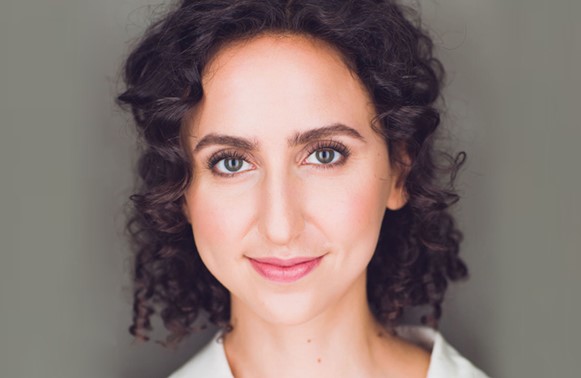Writer Previews Play About Her Mom’s Life with Lupus

Writer Previews Play About Her Mom’s Life with Lupus
July 18, 2019
When I set out to write a solo show in the winter of 2017, I just wanted to see if I could. I had spent the previous summer working at a professional theater festival, where a popular refrain was, “Create your own opportunities.” Back in college, when I saw a Solo Performance class offered, I groaned. Theater allows people to be together in a singular way: the actors and the audience share an experience that exists apart from the hustle of daily life. What would be the point of being up there alone? That kind of attention seemed self-indulgent, unnecessary, and terrifying. But the acuteness of my fear felt like a sign. Plus, I figured, no one would ever see it.
Before describing what came next, something else should be said about that winter. On January 20, 2017, my mother slipped in the supermarket. What for some may have been an embarrassing blip in a long day of errands, was for my mom enough to shatter bones and set off a series of events that would keep her in the hospital for three months. The answer to “Why?” is simple: lupus. This fall provided further proof of the havoc decades of dependence on corticosteroids will wreak on the body. My mother lay in Morristown Memorial Hospital, my father and younger brother held down the homefront, and I got to escape back to Providence, Rhode Island to play the role of student. So, even though I didn’t want to make a play about what was happening a couple hundred miles away, it was hard to think about anything else.
Interviewing my mom for this play, I wasn’t interested in framing the discussion around what lupus has taken from her. She told me her stories, which lupus moves through as one of many threads in the tapestry of her life. She’s not a character reducible to the label of “Victim” or “Hero”. Rather than fixating on traumatic events, our attention drifted to the small, daily tragedies and victories that are often overlooked compared to the less common moments of crisis. Though less extreme than the ER visits and catastrophic falls, these details offer a more accurate depiction of life with chronic illness. Yet, they are so rarely examined. I’ve observed how living with a chronic illness often asks the individual to testify to their experience–to justify its seriousness or to brush off its consequences. There is vulnerability and exhaustion in trying to make people understand but there isolation and convenience in staying quiet, especially when even reviewing a medical history with a physician can be harrowing. With lemons, I wanted to give my mother a platform to be heard but relieve her (temporarily) from having to advocate for herself.
Although I do not have lupus, I’ve never lived without it, never had a mother who does not have it, and never been aware of the body without knowing bad things can happen to it. “The Lupus Experience” may not be my story to tell, so this play does not attempt to: what started as a play about lots of people’s bodies became a play about one person’s body, which then became a play called lemons about a mother and daughter sharing their experiences. That means leaving space for pain and for luck. Unlike so many, my mother has access to top healthcare, a meaningful career, friends and family to support her, and much more.
In short, lemons is full of joy, bitterness, and humor. The first production will be part of NYC Summerfest at Manhattan’s Hudson Guild Theater on 8/29, 8/31, and 9/1. here. The United Solo production of lemons will take place 10/30 at Theatre Row on 42nd St.
I have been a member of the LRA community for over a decade, and I am so grateful to be able to share this with you all now. I am inspired by your vibrancy, passion, and accomplishments. Thank you and hope to see you at the theater!



